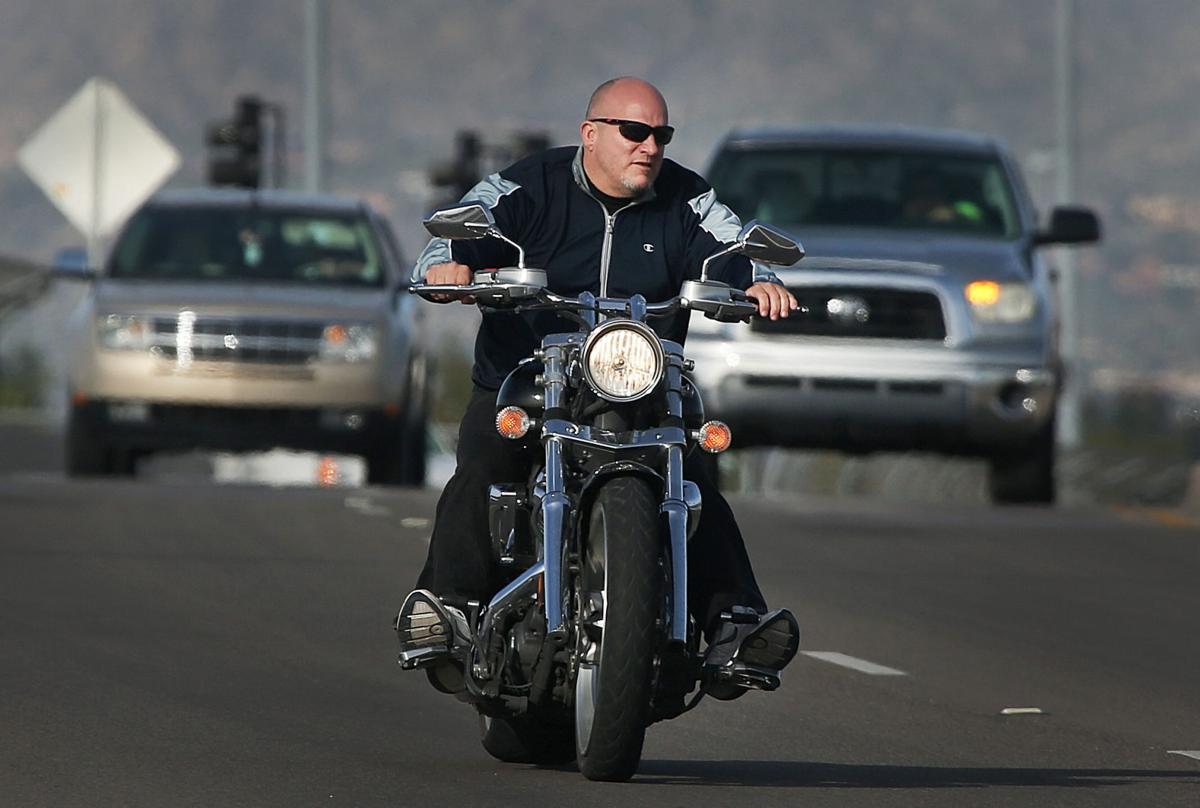PHOENIX — A Tucson lawmaker wants to once again make it illegal to ride a motorcycle in Arizona without a helmet.
But there’s a twist to the proposal by Democratic Rep. Randall Friese: If you like riding without a helmet, you could buy your way out of having to comply with the law — by paying into a special fund for people who suffer head injuries in crashes.
It’s not that Friese believes the option to get out of wearing a helmet is a good idea. But he says it may be the only way to get his proposal heard by the Legislature, much less approved and signed into law.
Arizona repealed its helmet law for adults in 1976, though those 18 and younger remain subject to the requirement. Perennial efforts to revive the law faced strong opposition from motorcycle riders.
Friese is a trauma surgeon and sees the issue from that perspective.
“Research has shown, time and time again, hundreds of millions of dollars will be saved if we prevent head injury,” he said. “If you’re 20 years old and get a lifetime head injury, you’re institutionalized for decades. It costs tens of millions of dollars to hundreds of millions of dollars.”
His legislation, HB 2046, would impose an automatic $500 fine for each helmet violation.
Friese, who has proposed a mandatory helmet law in the past, said he quickly learned that politics are not on his side.
“When I introduced this bill two years ago, the first thing I heard was, ‘It is my right to ride my bike without my helmet,’” he said.
“I don’t believe it’s a right. I believe it’s a privilege.”
Still, the votes are not there. So HB 2046 also says anyone who wants to ride a motorcycle, all-terrain vehicle or motor-driven cycle without a helmet simply has to pay an annual fee to the Arizona Department of Transportation.
The money would go into a special fund to provide rehabilitation, transitional living and equipment necessary for daily living by those who suffer head injuries in motor vehicle accidents.
The legislation does not spell out what the fee would be, leaving that to the transportation department director.
Any measure that imposes a new specific fee requires a two-thirds vote of both the House and Senate.
Leaving the fee up to an agency allows a measure to pass with a simple majority, an easier hurdle for Friese to overcome.
But Friese figures the fee will be less than the $500 fine.
In another bid to gain votes, Friese agreed to make the violation a secondary enforcement.
As with seat-belt laws, a police officer could not stop a cyclist solely because he or she lacked a helmet. A citation for failing to wear a helmet could be issued only if the person was originally pulled over for some other reason.
Motorcyclists who opted out of the helmet law could ride on, ticket-free, after a check of their license by the officer determined they had paid the fee.
Friese conceded he knows of no other Arizona law with a provision allowing motorists to pre-emptively buy their way out of complying with a traffic law.
“That would be a precedent that’s a concerning thing to set,” he said. “But I’m trying to find a solution to a problem that is robust.
“Even if we can get 10 percent more people, 20 percent more people or 40 percent more people wearing a helmet, we’re going to save money, we’re going to save lives.”





